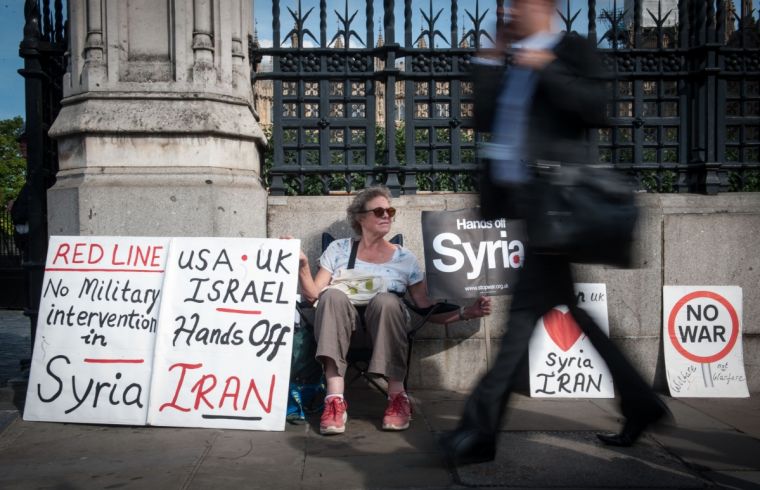Syria: Blessed are the peacemakers

It is the worst humanitarian calamity of the century, according to the United Nations.
Two million Syrians have fled their country – and a further 4.3 million have been forced from their homes while remaining within the nation's borders as war continues to rage.
"Syria has become the great tragedy of this century - a disgraceful humanitarian calamity with suffering and displacement unparalleled in recent history," according to Antonio Guterres, head of the UN High Commission for Refugees.
This maelstrom of human suffering – forged in the crucible of conflict between a dictatorial, brutal and desperate secular regime and an assortment of jihadist, Islamist, and Al Qaeda-backed opposition fighters hoping to establish an equally unappealing regime – is an unfolding human disaster beyond our imagination.
There is no obviously "right" side in this fight – only a battle of conflicting wrongs and evils, albeit with perhaps the odd glimmer of light in the darkness from a few holding the candle for genuine democracy among those fighting Assad.
In such a situation, what is the Christian approach? To add potential fuel to the fire by backing airstrikes with all the potential for collateral damage to civilians and for triggering a wider conflict across the whole Middle East? Why would more violence be the answer here? How would it make things better?
The words of Jesus – "Blessed are the peacemakers, for they will be called children of God" (Matthew 5v9) – have rarely seemed so pertinent. That's why I admire and salute the courage of British Parliamentarians in asking the tough questions and deciding there are no easy answers through military intervention. It's why I am proud that the UK's contribution of £348 million is the second largest package of humanitarian aid to the area – providing relief both in Syria and in neighbouring countries to which refugees have fled.
It's why I hope American Congressmen and women follow the example of their British counterparts and vote for peace, not war, even at this late stage.
Damascus-based Patriarch Gregorios III has been reported on this news website as stating that armed intervention by the West would only "fuel" violence. Pope Francis has called for a day of prayer and fasting this Saturday, September 7, for peace in Syria. As he put it: "How much suffering, how much devastation, how much pain has the use of arms carried in its wake in this martyred country, especially among civilians and the unarmed!" The Pope added: "War begets war, violence begets violence." It is certainly hard to encompass any US airstrike within the concept of a "just war".
As former Labour MP and Foreign Secretary David Miliband has rightly declared in the Financial Times: "None of the military options being canvassed – or, in the UK, rejected – promises a decisive shift in the course of the conflict."
He continues: "The humanitarian effort over the past two years has made a difference; three million Syrians in the country are receiving life-saving help. Refugees outside are receiving education, housing and cash assistance. But whether as a result of the financial crisis, or post-Iraq intervention fatigue, the United Nations has raised only about a third of the required funds for its global appeal." Just one-third!
In a world awash with costly weapons – and in a situation of conflagration into which the United States is currently considering throwing multi-million dollar missiles – I wonder, does Jesus look at us now and say what he once said to Jerusalem in a different context: "Would that you, even you, had known on this day the things that make for peace! But now they are hidden from your eyes."











